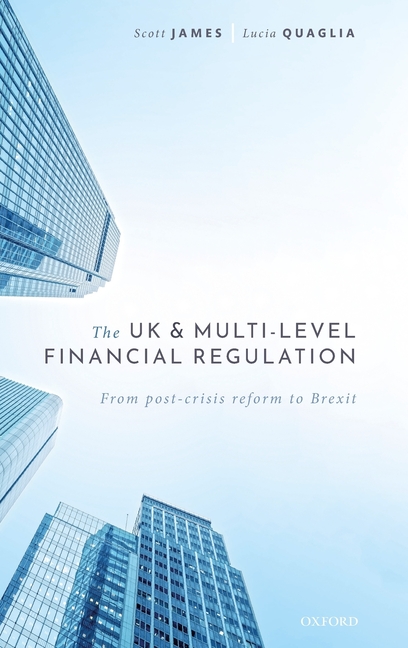
The UK and Multi-Level Financial Regulation: From Post-Crisis Reform to Brexit
The book examines the role of the United Kingdom in shaping the reform of financial regulation since the global financial crisis, and assesses the implications of the UK's withdrawal from the European Union.
| Quantity | Price | Discount |
|---|---|---|
| List Price | $100.00 |
Non-returnable discount pricing
$100.00
Book Information
| Publisher: | Oxford University Press, USA |
|---|---|
| Publish Date: | 03/06/2020 |
| Pages: | 240 |
| ISBN-13: | 9780198828952 |
| ISBN-10: | 0198828950 |
| Language: | English |
Full Description
The UK and Multi-level Financial Regulation examines the role of the United Kingdom (UK) in shaping post-crisis financial regulatory reform, and assesses the implications of the UK's withdrawal from the European Union (EU). It develops a domestic political economy approach to examine how the interaction of three domestic groups - elected officials, financial regulators, and the financial industry - shaped UK preferences, strategy, and influence in international and EU-level regulatory negotiations. The framework is applied to five case studies: bank capital and liquidity requirements; bank recovery and resolution rules; bank structural reforms; hedge fund regulation; and the regulation of over-the-counter derivatives. It concludes by reflecting on the future of UK financial regulation after Brexit. The book argues that UK regulators pursued more stringent regulation when they had strong political support to resist financial industry lobbying. UK regulators promoted international harmonisation of rules when this protected the competitiveness of industry or enabled cross-border externalities to be managed more effectively; but were often more resistant to new EU rules when these threatened UK interests. Consequently, the UK was more successful at shaping international standards by leveraging its market power, regulatory capacity, and alliance building (with the US). But it often met with greater political resistance at the EU level, forcing it to use legal challenges to block reform or secure exemptions. The book concludes that political and regulatory pressure was pivotal in defining the UK's 'hard' Brexit position, and so the future UK-EU relationship in finance will most likely be based on a framework of regulatory equivalence.

